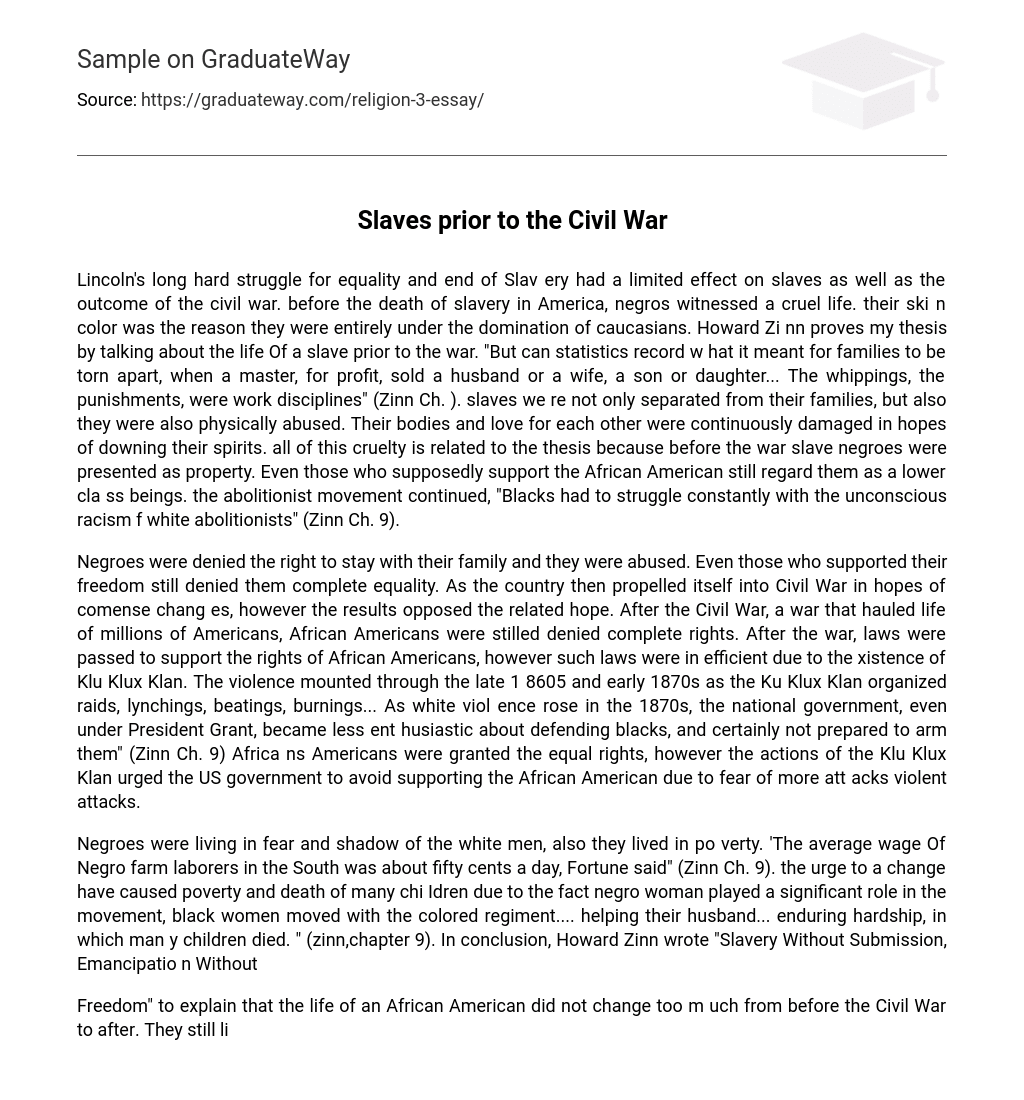Lincoln’s long hard struggle for equality and end of Slav ery had a limited effect on slaves as well as the outcome of the civil war. before the death of slavery in America, negros witnessed a cruel life. their ski n color was the reason they were entirely under the domination of caucasians. Howard Zi nn proves my thesis by talking about the life Of a slave prior to the war. “But can statistics record w hat it meant for families to be torn apart, when a master, for profit, sold a husband or a wife, a son or daughter… The whippings, the punishments, were work disciplines” (Zinn Ch. ). slaves we re not only separated from their families, but also they were also physically abused. Their bodies and love for each other were continuously damaged in hopes of downing their spirits. all of this cruelty is related to the thesis because before the war slave negroes were presented as property. Even those who supposedly support the African American still regard them as a lower cla ss beings. the abolitionist movement continued, “Blacks had to struggle constantly with the unconscious racism f white abolitionists” (Zinn Ch. 9).
Negroes were denied the right to stay with their family and they were abused. Even those who supported their freedom still denied them complete equality. As the country then propelled itself into Civil War in hopes of comense chang es, however the results opposed the related hope. After the Civil War, a war that hauled life of millions of Americans, African Americans were stilled denied complete rights. After the war, laws were passed to support the rights of African Americans, however such laws were in efficient due to the xistence of Klu Klux Klan. The violence mounted through the late 1 8605 and early 1870s as the Ku Klux Klan organized raids, lynchings, beatings, burnings… As white viol ence rose in the 1870s, the national government, even under President Grant, became less ent husiastic about defending blacks, and certainly not prepared to arm them” (Zinn Ch. 9) Africa ns Americans were granted the equal rights, however the actions of the Klu Klux Klan urged the US government to avoid supporting the African American due to fear of more att acks violent attacks.
Negroes were living in fear and shadow of the white men, also they lived in po verty. ‘The average wage Of Negro farm laborers in the South was about fifty cents a day, Fortune said” (Zinn Ch. 9). the urge to a change have caused poverty and death of many chi Idren due to the fact negro woman played a significant role in the movement, black women moved with the colored regiment…. helping their husband… enduring hardship, in which man y children died. ” (zinn,chapter 9). In conclusion, Howard Zinn wrote “Slavery Without Submission, Emancipatio n Without
Freedom” to explain that the life of an African American did not change too m uch from before the Civil War to after. They still lived in poverty and were living in fear and sha dow of the white man. Zinn proves his thesis by including the separation of families that occurr ed, the racism that existed in the abolitionist movement, the Fugitive Slave Act, and the physical a buse of slaves prior to the Civil War, and then the amendments that were basically ignored a fter the emergence of the KKK, and the living conditions of an African American after the war.





